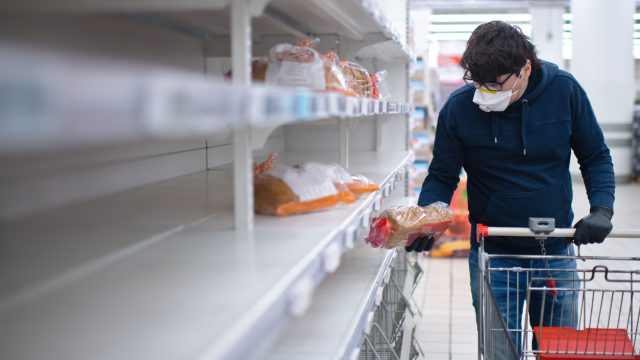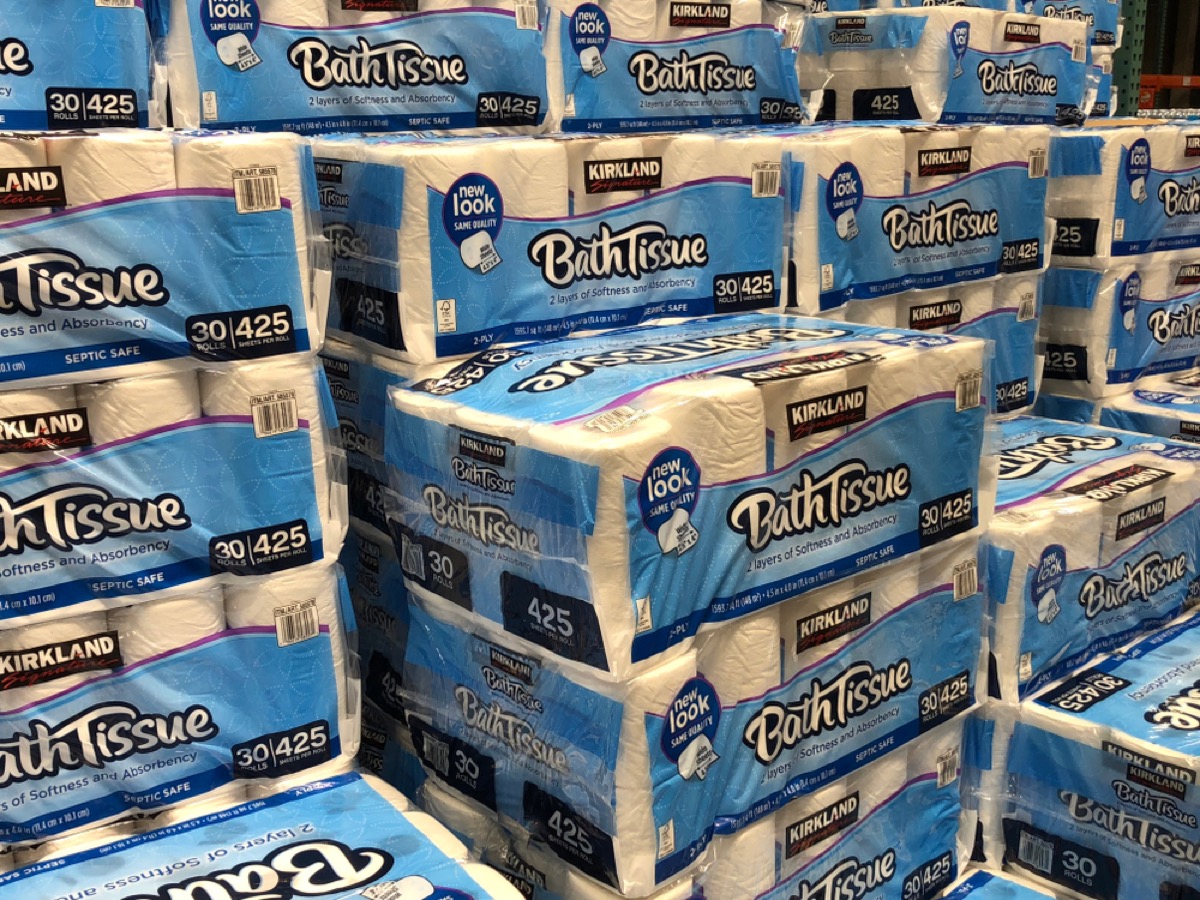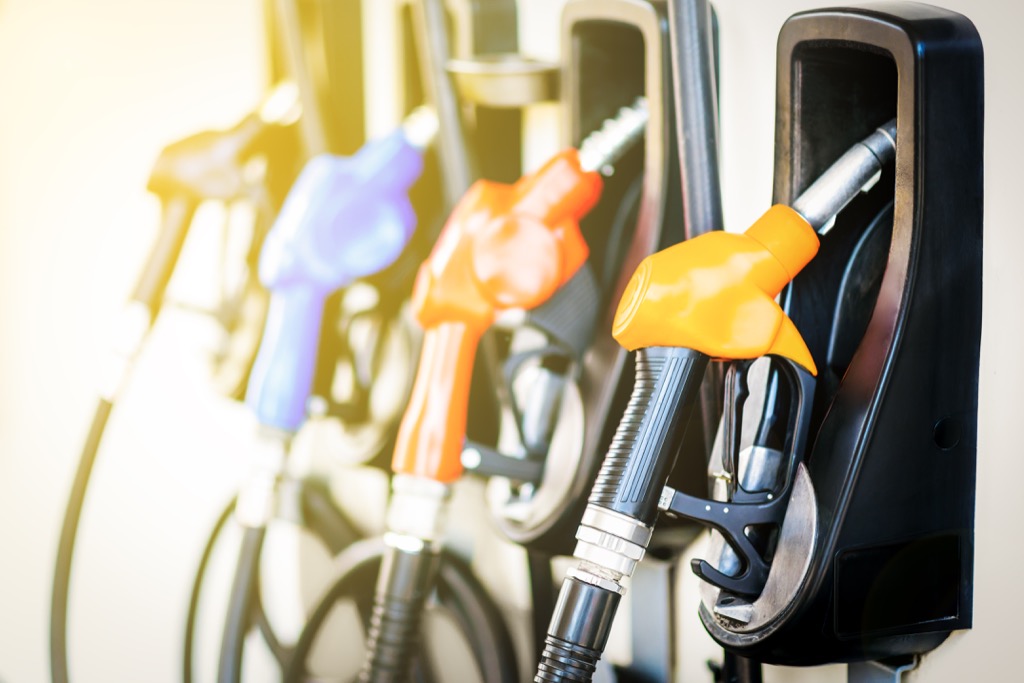These Popular Products Are About to Disappear From Shelves, Experts Warn

For almost a week, the 1,300-foot Ever Given container ship blocked the Suez Canal, one of the world’s most important trade routes, after it was knocked off course by strong winds and reduced visibility due to a sandstorm. The boat became lodged in the sandy clay canal bed at an angle that blocked the waterway in both directions. Thankfully, attempts to move the Ever Given using tug boats, diggers, and high pressure hoses finally proved successful today, but the effect of the blockage will be felt for some time worldwide. One immediate short-term effect was extreme volatility in the world’s stock markets, as Reuters reports, but trade experts are now further warning that four staples of our daily lives may all soon be in short supply as a result of the incident. For the full story of how the situation in Suez will affect global supply chains, read on, and for more on when you should avoid hitting up your local superstore, check out This Is the Absolute Worst Time to Shop at Walmart, Employees Say.
1
Coffee

Around 30 percent of the world’s total coffee production is made up of robusta, a species of coffee bean that comes from the coffea canephora plant. It has a stronger flavor and higher caffeine content than arabica, the market leader in coffee, and is used by many popular brands of instant coffee, including Nescafé. Bloomberg reports that with only two major robusta producers—Brazil and Ivory Coast—not using the Suez route to reach European consumers, delays are likely, with a domino effect to markets around the world.
“For traders, they are going to scramble to supply their clients in Europe,” Jan Luhmann, founder of JL Coffee Consulting and a former head coffee buyer at Jacobs Douwe Egberts BV, one of the world’s largest coffee roasters, told Bloomberg. “A lot of damage has already been done.”
And for more on how much coffee is too much, check out If You Drink This Much Coffee a Day, Your Heart’s in Danger, Study Finds.
2
Toilet paper

Around 10 percent of all global trade passes through the Suez Canal typically, which equals almost $10 billion of goods daily, USA Today reports. While imports from Asia to the U.S. tend to go via the Pacific, blockages anywhere impact the rest of the system. Business Insider has reported that this includes the toilet paper supply chain: around one-third of the wood pulp used worldwide for this product comes from Brazilian company Suzano, with CEO Walter Schalka telling reporters that “competition for shipping containers would likely push Suzano’s shipments back at least a month.”
Lars Jensen, an independent container shipping experts based in Denmark, told NBC News that “basically anything you see in the stores,” could be affected by delays.
3
Furniture

The furniture industry’s supply chains have already been under severe strain for the past year, with the sudden rise in people working from home and upgrading their living spaces leading to demand outstripping supply. The Washington Post reported that this sales boom, coupled with a shortage of shipping containers needed to move goods, was resulting in “unprecedented delays for sofas and desks.” There have also been freak incidents, like the shipwreck in January that saw 4,000 containers of furniture cargo for the likes of Ikea and Amazon fall straight to the ocean floor.
NBC News further attributed delays in goods arriving to “COVID-19 restrictions at ports and a decrease in the number of healthy and available longshoremen and other logistics workers are also pinching throughput.”
4
Oil

Around 7 percent of all seaborne oil—or 1.9 million barrels per day—goes through the Suez Canal. While these are mainly shipments of oil and natural gas moving from the Middle East to Europe, delays anywhere in the market inject volatility into pricing (Business Insider reported that the price of Brent Crude rose from $60 per barrel to almost $65 over the course of last week before dropping to $64.03 as news of the ship’s refloating broke).
But as with the furniture industry’s problems, the Suez snarl-up is building on problems the market was already facing. As USA Today explained, “Pump prices already have climbed because of a winter storm that shut down Texas refineries and a switch by refineries to more expensive summer gasoline blends.”
After a year of COVID restrictions, panic buying, election uncertainty, and devastating storms, more upheaval is the last thing any market (or any shopper) needs, so observers are hoping that things continue to move smoothly from hereon out, for everyone’s sake. And for more on the latest retail news, check out why This Beloved Store Is Closing 65 Locations.